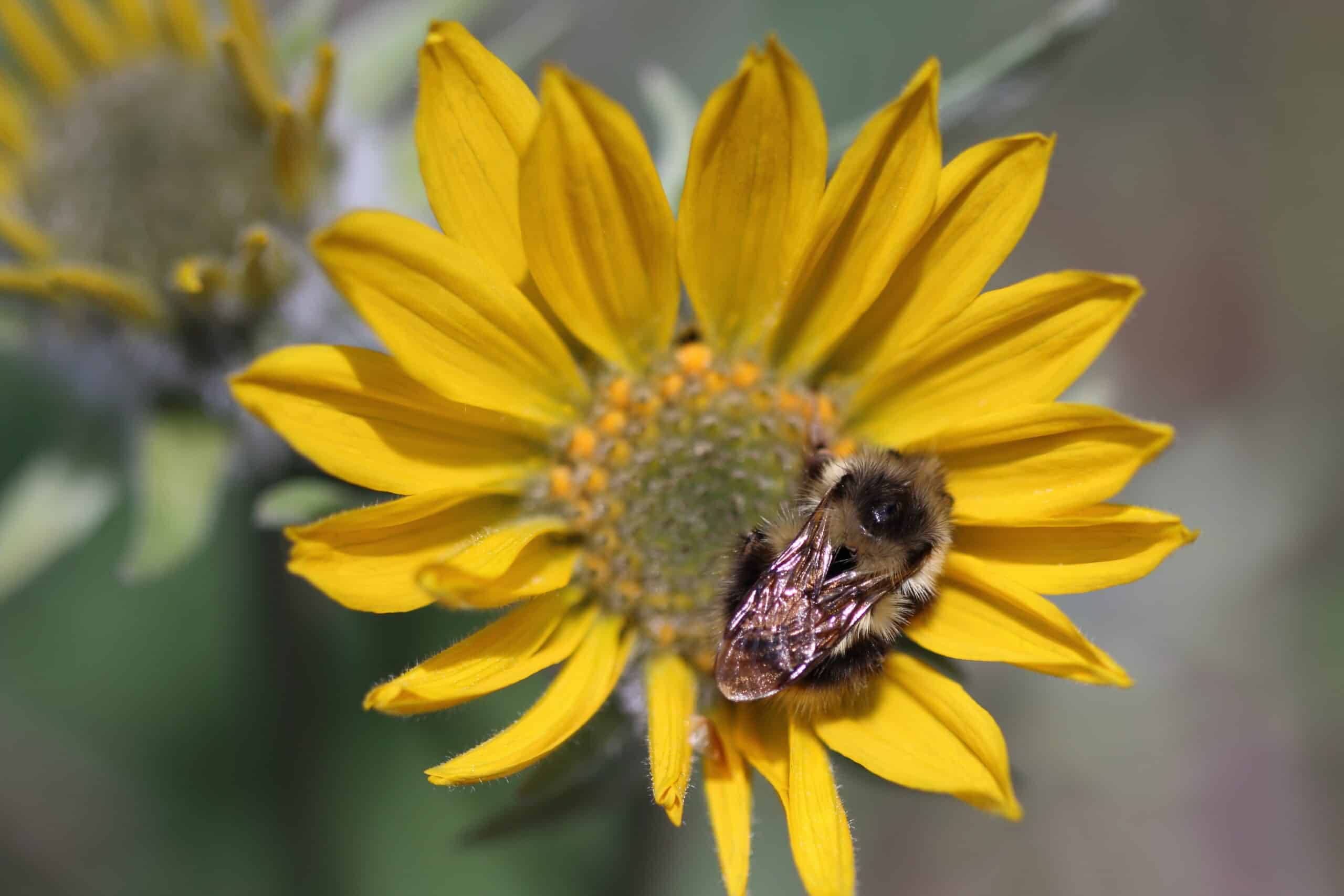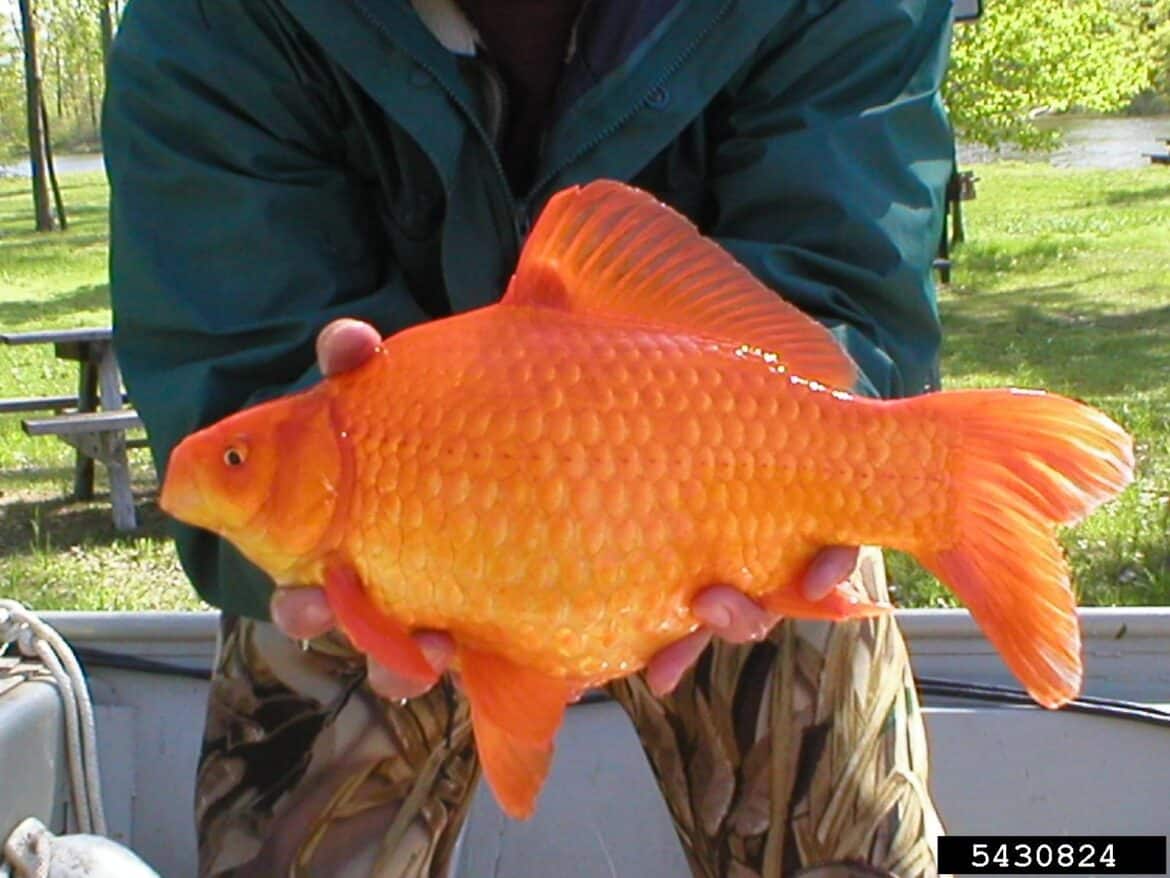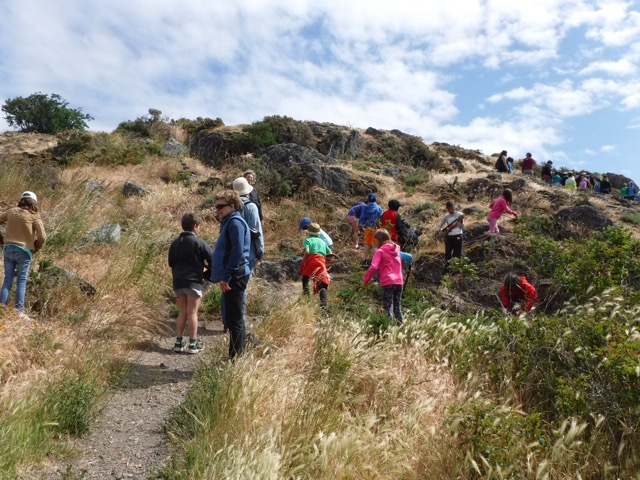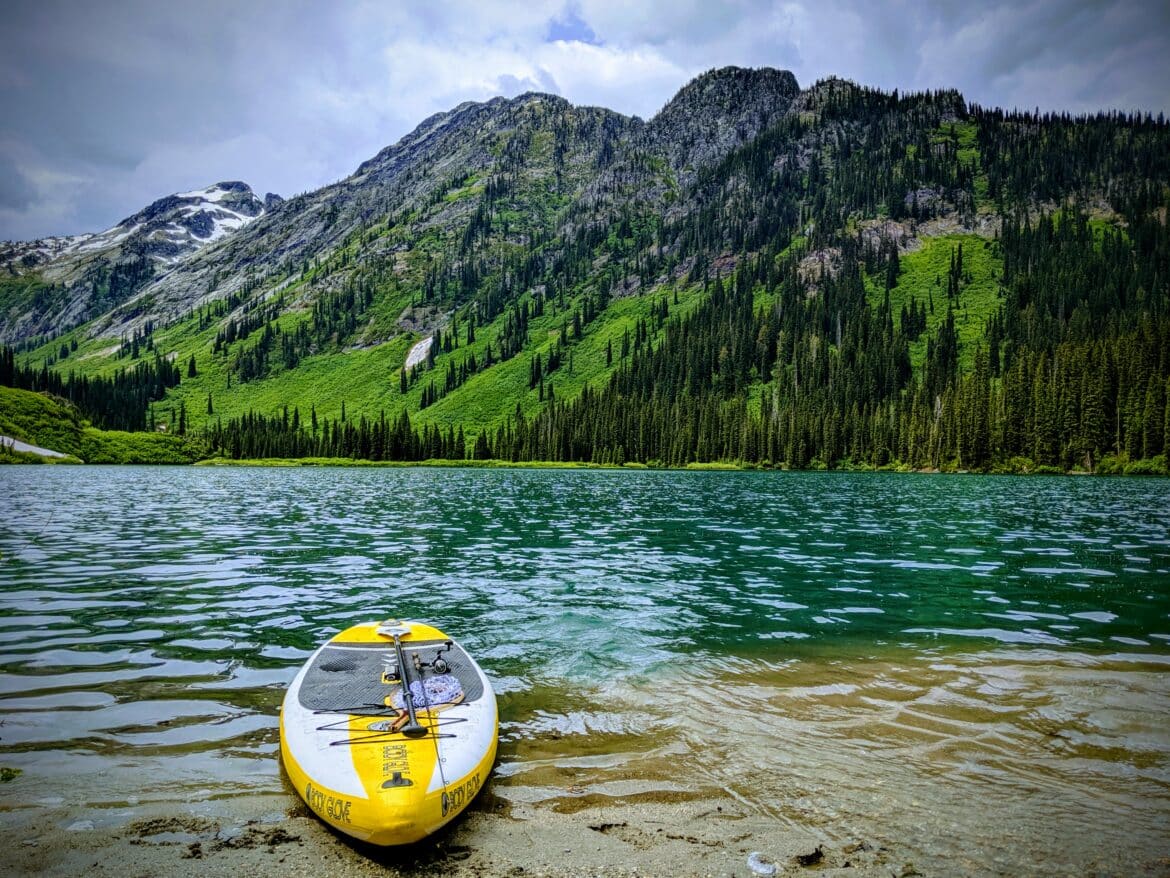
Every year the province of BC proclaims May, Invasive Species Action Month. This year, we’re bringing Invasive Species Action Month (ISAM) 2024 back to basics! In a month-long effort to generate awareness about the threat of invasive species in B.C., we’ll share how to identify, report, manage, and prevent their spread – important new information for some and a great reminder for everyone.
From informative webinars, to some awesome new swag, it’s an exciting month and we can’t wait to share it with you!
May 1 – 10
Is that an invasive species? As plants emerge this spring, it’s helpful to learn what’s cropping up. Some invasive plants can be dangerous to human health. Others crowd out important native species. Can you confidently identify them? The focus this week will help you do that. Follow along on our social platforms as we feature species of interest and check out these helpful tools for identification:
Check up on a species you’re unsure of: Identify me!
Take a free eLearning course anytime to learn about invasive species: Free course

Webinar 1: Supporting our pollinators with native and non-invasive plants
Did you know that some plants touted as “good for pollinators” are invasive species? And some of them aren’t even very good for bees and butterflies! Learn about the flower traits that pollinators find attractive, and get suggestions for non-invasive species that you can use to support pollinators in your garden. Garden introductions were the source of several of our worst BC invasives like Scotch broom, purple loosestrife, and butterfly bush. Modern gardeners can be part of the solution when we make smart plant choices!
Tuesday, May 7th, 2024 @ 12:00 – 1:00 pm PT
Meet the Speaker: Dr. Elizabeth Elle from Simon Fraser University
Elizabeth Elle is Professor of Biological Sciences at Simon Fraser University. Her research focusses on the drivers of pollinator biodiversity and the role of pollinating and other insects in natural, agricultural, and urban/suburban landscapes. Her gardening hobby intersects with her work life as a conservation ecologist, resulting in practical advice for gardeners, land managers, farmers, and others interested in how everyday people can contribute to pollinator conservation.
May 11 – 17
I’m going to report you! Now that you can identify an invasive species, what are you going to do about it? Reporting your findings is a key part of invasive species awareness. The information you share about an invasive species may even uncover a new threat. All information helps the scientific community identify and manage invasive species. What’s the big deal anyways? Every invasive species has the potential to make a big negative impact, and some are capable of significant environmental harm. If you see an invasive species, report it:
Where to report an invasive species: Take action
Need some help getting set up? Take this free 15 minute course on how to use iNaturalist: Free course

Webinar 2: Of fish tanks and tackle boxes: Invasive Goldfish and Smallmouth bass in BC
The goldfish, Carassius auratus, is one of the most popular aquarium fishes in the world, but can damage BC lakes and rivers due to its competition with native fishes for food, its predation on the eggs and larvae of amphibians, its uprooting and consumption of aquatic plants, and the parasites it could spread to native salmonids. Smallmouth bass (Micropterus dolomieu) is a popular sport fish that has been illegally introduced to BC lakes and rivers, where it consumes juvenile trout and salmon. Methods of control that will be discussed include poisoning small lakes with Rotenone, electroshocking fish during spring spawning periods, spearfishing male bass on nests, and stronger policies regarding pet industry practices surrounding the release vs. return of aquarium fishes.
Tuesday, May 14th, 2024 @ 12:00 – 1:00 pm PT
Meet the Speaker: Brian Heise from Thompson Rivers University
Brian Heise is a faculty member in the Department of Natural Resource Sciences at Thompson Rivers University, in Kamloops BC., where he teaches courses in ichthyology, fisheries management, limnology, and ecosystem reclamation. His research looks at the effects of various land use practices on freshwater ecosystems, with an emphasis on aquatic invertebrates and invasive fishes. Brian is also a former Chair of the Invasive Species Council of BC.
May 18 – 24
I want to see the manager! You’ve correctly identified and reported an invasive species. How are you going to manage it? Removing invasive species, such as plants from your yard, is good for the local ecosystem and biodiversity. Every species has unique properties and recommended removal methods (beware of toxic properties of some invasive plants, like Daphne and Myrtle spurge!).
How to manage specific invasive species: Remove me!
What happens if you find a toxic plant: Proceed with caution/report me!

Webinar 3: PlantWise School Gardens: Student activities and resources to prevent the spread of invasive species and support biodiversity on school grounds.
It’s planting time! Our Education Team, Jennifer Hegan, and Stephanie Weinstein, will share engaging activities and educator resources that support Invasive-Wise school garden projects. Come learn about ways to connect your students to nature in the schoolyard while taking action to prevent the spread of harmful invasive plants. Walk away with fresh ideas and ready-to-go resources and lesson plans. Bring your school garden questions, too!

Thursday, May 23rd, 2024 @ 3:30 – 4:30 pm PT
Meet the Speakers: Stephanie Weinstein and Jennifer Hegan from ISCBC
Stephanie is a biologist and environmental educator with over 20 years of experience. As the Senior Lead of Education with ISCBC, Stephanie supports educators with place-based outdoor learning and integrating invasive species education and action into their teaching. You may find Stephanie peering through binoculars among the Garry oaks or crouched over a tide pool near her home in Victoria, B.C.
Jen brings an environmental science background and a passion for forest foraging, growing food, and experiential learning to Invasive Species Education. Jen is lucky to live and farm in the Bulkley Valley of Northwest B.C. where she has worked for 20 years as an Educator in school gardens, food security, and outdoor and nature-based teaching.
May 25 – 31
I’m going to prevent you from spreading! Invasive species are sneaky, hitching a ride in the most unlikely, unexpected ways – on your bike tires, hiding on your pet’s fur, in your firewood, and even in the last few drops of water in your canoe. Whether you’re a hiker, biker, paddleboarder, angler, pet owner, or general outdoor adventurer, there are ways you can help prevent the spread!
How you can stop invasive hitchhikers: Play your part!
Need regional-specific information: Consult our networks
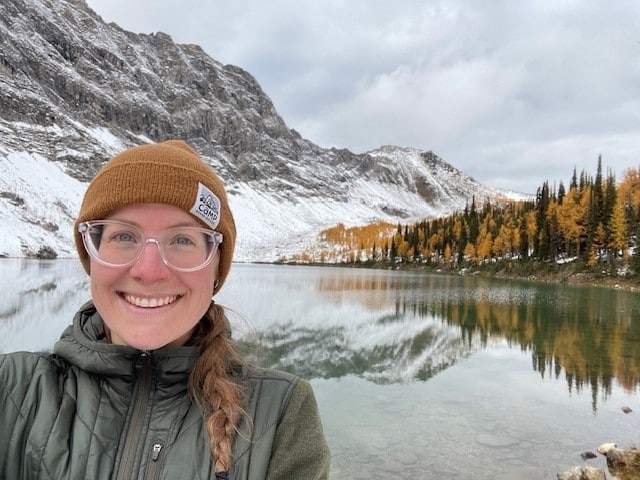
Webinar 4: Parks Canada’s response to the detection of the whirling disease parasite in Yoho National Park
Whirling disease was first detected in Canada in 2016 in Banff National Park. To prevent the spread of the parasite and other aquatic invasive species of concern, Clean Drain Dry practices and prevention measures were put in place in Banff, Yoho and Kootenay national parks. However, in the fall of 2023, the whirling disease parasite was detected for the first time in British Columbia in Emerald Lake within Yoho National Park. This presentation will outline Parks Canada’s response and current management tactics.
Tuesday, May 28th, 2024 @ 12:00 – 12:45 pm PT
Meet the Speaker: Marie Veillard from Parks Canada
Marie Veillard is the aquatic invasive species coordinator in the Lake Louise, Yoho, and Kootenay field unit with Parks Canada. Following the first detection of whirling disease in Canada, Marie spent four years working as a biologist for the Government of Alberta on the whirling disease response. With Parks Canada, she has spent the past two years coordinating the aquatic invasive species prevention team and works on early detection monitoring for aquatic invasive species.
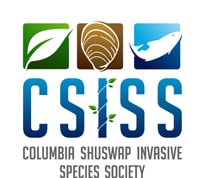
Partner Webinar: Columbia Shuswap regional discussion on whirling disease
Columbia Shuswap Invasive Species Society (CSISS) is hosting a North Columbia regional discussion on whirling disease to encourage regional outreach and prevention best practices, including an update from Provincial WLRS staff. The meeting will follow ISCBC’s webinar presentation by Parks Canada.
Tuesday, May 28th, 2024 @ 1:00 – 2:00 pm PT

Webinar 5: InvasivesBC: Tracking the location and management action of invasive plants in BC
Join the Ministry of Forests’ Invasive Plant Program for an update on the NEW provincial invasive species database and mapping application called InvasivesBC. InvasivesBC replaced the former Invasive Alien Plant Program (IAPP) system in June of 2023, and already houses close to 60 000 records and almost 500 registered users. The new records entered since the launch of InvasivesBC combined with 18 years of IAPP data make up the most comprehensive invasive plant occurrence and management history in a single shared database across North America and possibly beyond! BC is fortunate to not only have a dedicated network of people reporting on and managing invasive plants across the Province but also that we have this modernized system available for use by everyone working on invasive plant management in BC to track this important information and support strategic and effective management decisions. This webinar will provide a quick introduction to the system for folks new to InvasivesBC, and then cover a more detailed demonstration of the updates and new features recently released in the new “single map” version currently live at InvasivesBC.gov.bc.ca. The presenters will also cover what is currently being developed and what users can expect to see in future releases. Time will be allocated for Q and A at the end.

Thursday, May 30th, 2024 @ 12:00 – 1:00 pm PT
Meet the Speakers: Crystal Chadburn and Brennan Webster from the BC Ministry of Forests
Crystal Chadburn, PAg is a Professional Agrologist and has worked in the field of invasive plant management in BC for over 18 years. She first began working with invasive plants as consultant in the West Kootenays, then in 2007, she joined the BC Provincial Government as a Range Agrologist in the Chilcotin. From 2010-2019 Crystal worked as the Environmental Roadside Manager for the Ministry of Transportation and Infrastructure where she provided guidance and expertise on roadside vegetation management across the Province, including managing the Ministry’s Invasive Species Management Program. In April of 2019, Crystal moved to the BC Ministry of Forests as their Senior Invasive Plant Specialist where she helps lead a team of invasive plant specialists and technicians and supports strategic initiatives and policy development for invasive plant management throughout BC. Crystal is a member of the BC Inter-Ministry Invasive Species Working Group and a director on the Integrated Vegetation Management Association of BC.
Brennan Webster has been working for the BC Ministry of Forests Invasive Plant Program since 2019. He began as a Resource Assistant conducting invasive plant surveys and treatments in the field, and over time moved into a position as the program’s Invasive Species Data Specialist, where he can combine his invasive plant management, GIS and database development skill sets. Brennan has been involved with the development of InvasivesBC for the past couple years, and was a key member of the team leading the transition from the former Invasive Alien Plant Program (IAPP) database over to the new system, both on the development side and as supporting users as needed. Brennan is originally from Vancouver and moved to Castlegar in 2015 to attend Selkirk College.
During the Month of May
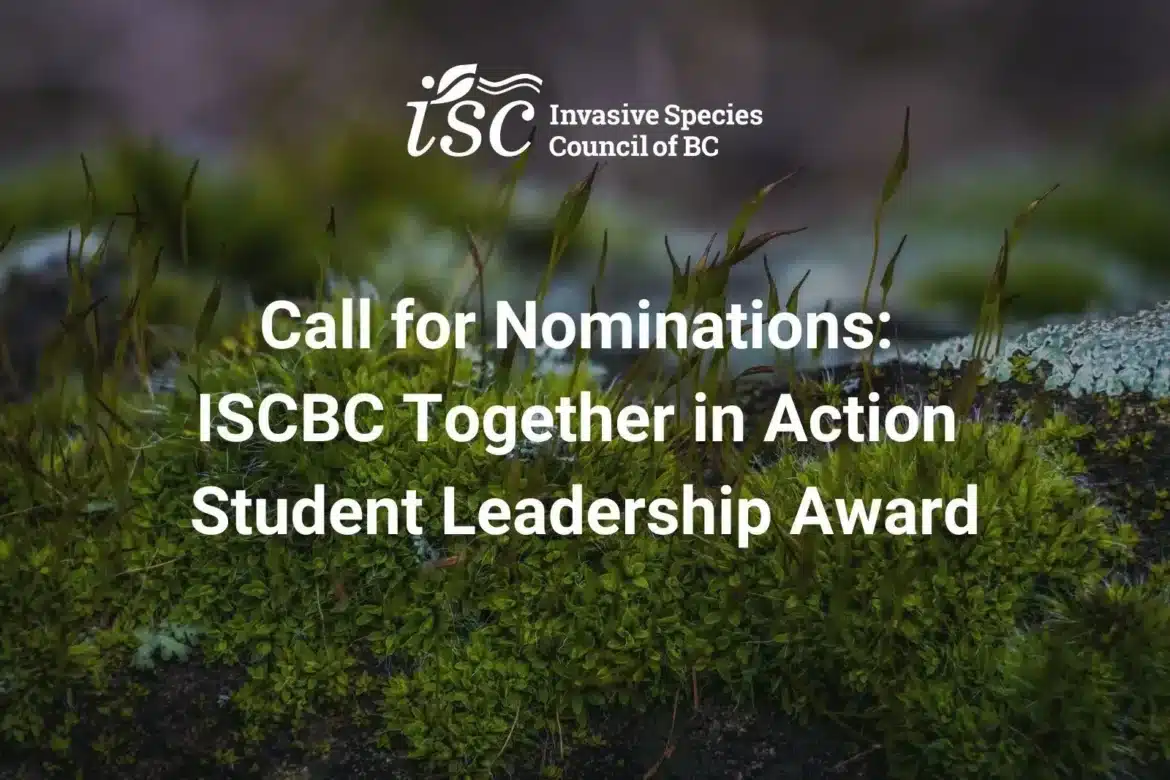
Each year ISCBC celebrates the accomplishments of those who go above and beyond in the field of invasive species management in BC. We have two Together in Action (TIA) award categories – a Student award (with a $1000 bursary) and an Individual award. Nominations for the individual award are internal and come from ISCBC Staff and Board. Nominations for the Student award are now open for nomination by the public until May 6th, 2024. Nominations can be made by the student themselves or another individual. Student nominees do not need to be attending university for invasive species related education.
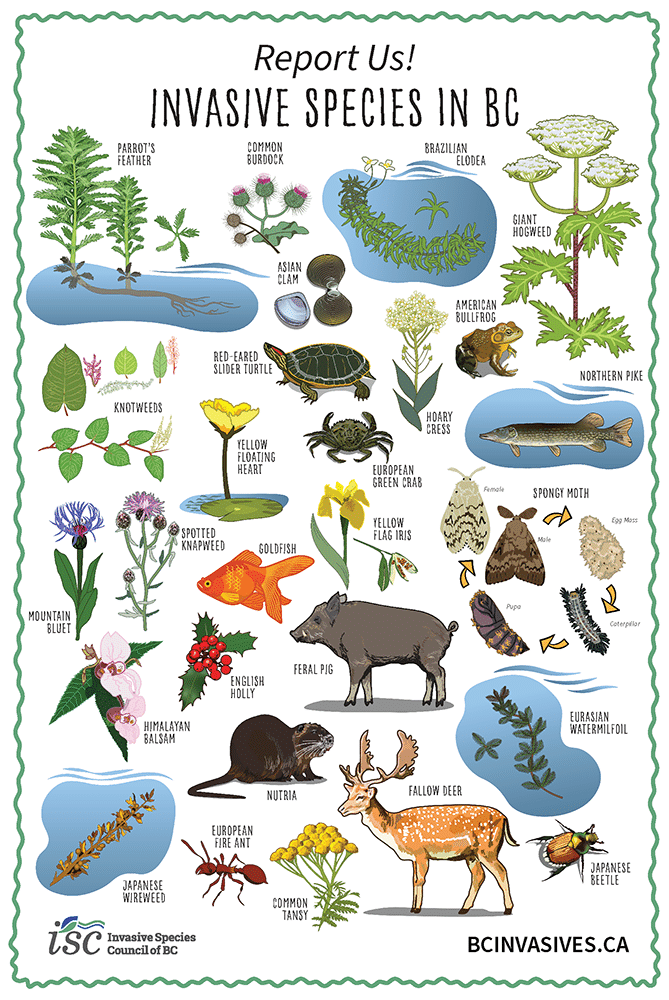
We’ve got new swag available May 1st, 2024! Check our store for new illustrated species stickers, as well as shiny new stickers reminding all of us to Clean Drain Dry, Squeal on Pigs, and Work Clean Go! Plus, a dynamic new Invasive species poster! And a favourite tool for teachers, the Aquatic Invasives Guide for Educators is also now available for purchase as a printed, bound document!
ISAM Events Around BC
Here’s what our regional partners from across the province have planned this month. Check back often as we continuously update this list!
